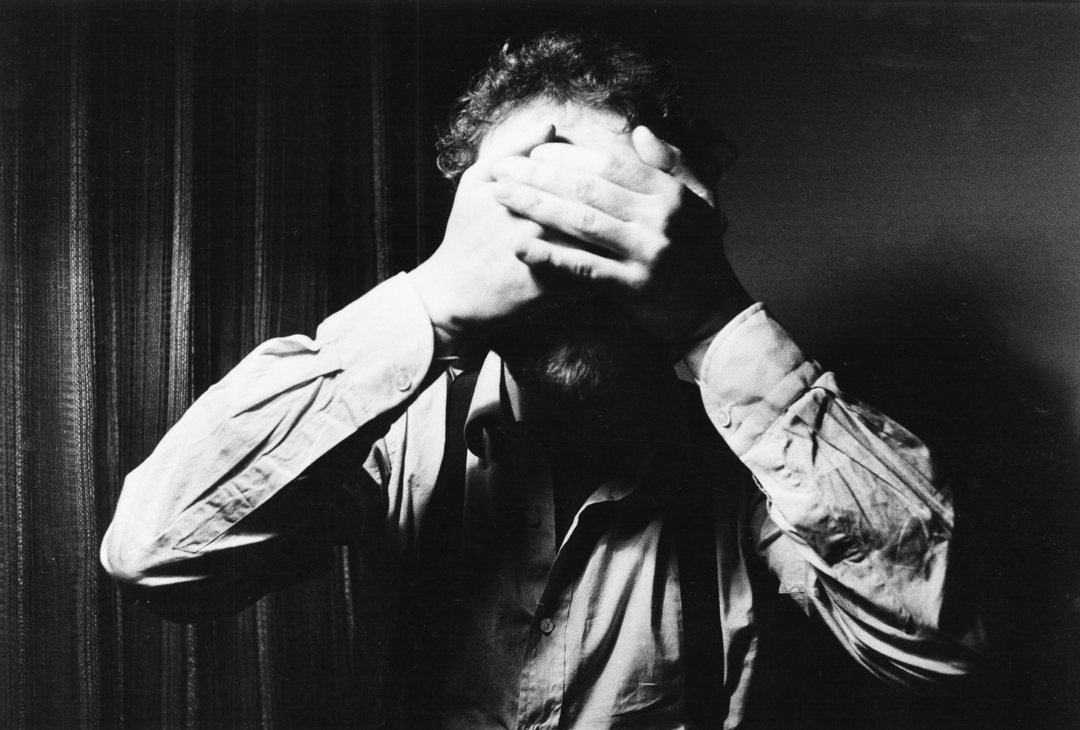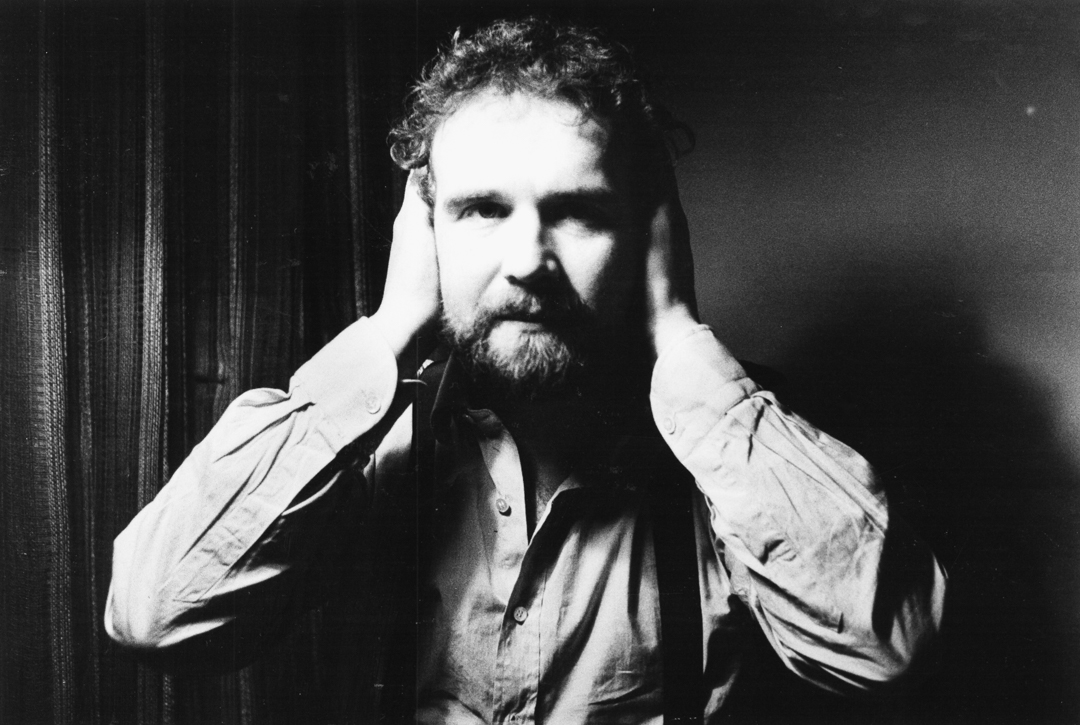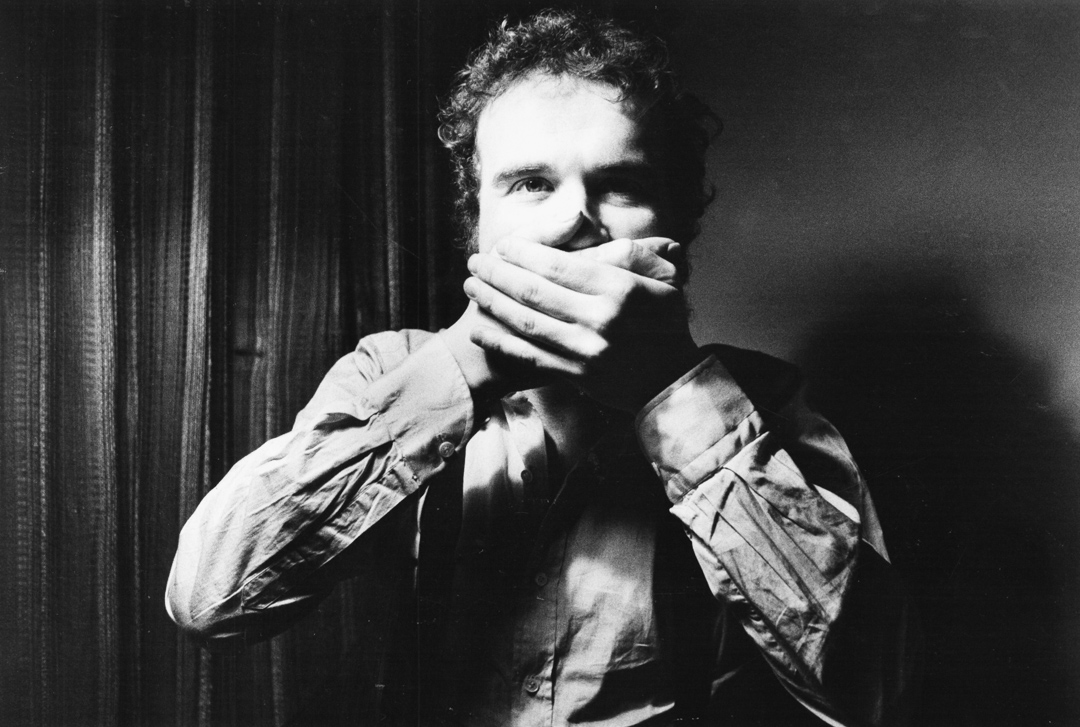- Music
- 11 Sep 23
On this day 75 years ago: John Martyn was born

To celebrate what would've been John Martyn's 75th birthday, we're revisiting a 1998 interview with the legendary singer-songwriter and guitarist. Plus, we're looking back at some special reflections on his music and legacy from the Hot Press archives...
Originally published in Hot Press in 1998
Interview: Colm O'Hare
Not all that long ago, you wouldn't have reasonably expected to be talking to John Martyn at the unearthly hour of 10.00am. Unless perhaps you had chanced upon him on the way home the morning after the night before, as it were. These days, however, he is not only up and about at the dawning of the day but sounding more chipper then ever. The legendary hoarse whisper booms with unexpected clarity.
As anyone familiar with his story will attest, Martyn was, and is, not only one of the finest British singer-songwriter/guitarists of the last 30 years but is also known to be a renowned consumer of fine liquor. Indeed, the last time yours truly set eyes upon him, he was propping up the bar at the Millstreet Music Fair, a rapidly-emptying bottle of Jack Daniels in his hand. Needless to say, this comes as a bit of a revelation to him!
"I can't say I remember that one too clearly," he laughs, down the phone line from somewhere in the north of England. "It was a good gig, though, I do remember that much."
Indeed it was. And precisely 30 years after his debut he s still playing great shows and making magnificent albums, albeit this time without the aid of the devil's brew, as he is keen to stress.
"I've been off it for about a year now," he explains. "It wasn't too hard a decision to make at the time. My pancreas collapsed totally, so I didn't really have a choice."
And does he miss the creative inspiration of the demon drink?
"Of course I do, but it's the only way for me to go right now. And it means I can concentrate on the music and keep the energy levels higher than they used to be."
Though he's written sublime classics like 'May You Never' (covered by Eric Clapton), 'Sweet Little Mystery' and 'Baby Please Come Home', Martyn's latest album The Church With One Bell consists of a selection of his favourite songs by other artists over the years and includes such eclectic choices as Randy Newman's 'God's Song', Billie Holiday's 'Strange Fruit' and the Bobby Charles/Rick Danko song 'Small Town Talk'.
"It's an album I've always wanted to do," he says. "We recorded about 30 songs and whittled it down to ten. I think we've got the mix about right."
The overall texture of the album leans towards the heavily jazz-inflected sound Martyn has adopted for most of his work since the beginning of the 1980s. But even then, his live sets included a strong acoustic element to satisfy fans of his earlier work. Could he see himself going back to that early folk sound at any point in the future?
"No, it's totally electric stuff at the moment," he replies. "I might go back to the acoustic when I'm a pensioner and I have to sit on a stool. We've got such a large repertoire these days and I do the ones they all want to hear, like 'Sweet Little Mystery' and 'May You Never', but I tend to take the mickey out of it a bit. I get the band to do a music hall version of that last one, which probably upsets some people."
"Actually," he adds, "I'm going to go towards a more dancey direction for the next album which I'm working on at the moment."
Unfortunately, only five minutes into this conversation Martyn tells me he has to leave and jump in the van to take him to the next gig. Does he still enjoy performing?
"I absolutely love it," he says. "Hate the travelling but love getting up before the audiences. See ya mate!"
Reflections on John Martyn's music and legacy from the Hot Press archives...
The Cure's Robert Smith:
“He was brilliant, he was just untouchable. He used very weird tuning and that’s the key to ‘Small Hours’. When I was learning to play the guitar when I was 16 or 17 and listening to his music, I loved the way he made shapes with his hands that weren’t conventional shapes. I do actually play a little bit like him. Well, I try to play a little bit like him, I’ve never quite achieved his fluidity.”
"The One World album is by far my favourite. I was 16 and in those days I didn’t have very much money and buying an album was a really big deal. I heard John Peel playing it a lot and even though I had a crackly cassette recording I wanted to hear what the proper album sounded like. When I got the vinyl home and put it on, the sound was just astonishing. During that period of your life there are so many things happening for the first time and you associate music a lot with events. There are a handful of albums from those years that I fell in love with and just mean a lot to me now. It’s a shame that it happens less frequently nowadays.”
(2011)
Iain Archer:
“I first met John when Miriam (Iain’s wife and collaborator) and I supported him for a month in about ’95. We got to know him and his band, as you do when you’re on tour with people. Afterwards, we crossed paths every now and again; I’d meet him at gigs and bump into him in various places. His death was a tragic thing, it really hit us pretty hard actually.
“The music is just full of such beautiful sorrow that you already associate everything that he did with that – the minute he goes, it brings all the feelings that you had wrapped up in the record down on your head.”
(2009)
David Gray:
“I didn’t know him. I did meet him a couple of times. I supported him in 1990 in Stoke. I think it was at a very bad moment for John. He was obviously heading into a bit of a struggle. And then a couple of years later he was on Jools Holland – the Later… programme – when I performed there. So I said hello, but we didn’t really get a chance to chat. I was too shy to try. Even at that point I didn’t know his music as well as I know it now. I knew a few things, but I didn’t know anything in-depth.
“I think he was a real talent. And obviously a difficult life, and a difficult career, but there’s some fantastic music in there. It was a privilege to try and cover a John Martyn track, and you know, I did the best that I could.”
(2010)
Derek Nally:
“I was not only a fan of John Martyn’s music but I also had a business relationship with him as a gig promoter since the early ‘80s. He was a remarkably generous guy, always keen to talk to people no matter what their station in life. When the Irish Press newspaper group was fighting to survive I asked him to play a benefit gig to raise funds for the strikers, and he agreed straight away, whereas some Irish artists made their excuses.
"He was utterly business-like in going into all the figures about a gig and totally reliable to deal with. I know he had health problems over the years, but he never ever let me down in any way. Whenever I met him I’d get a big hug. He was a little like Van Morrison when it came to musicians, and he would let a band member know in no uncertain terms if his playing wasn’t up to par.
"Although John came out of the folk scene in the late '60s, he was much more than a folk singer. He embraced jazz, blues and rock in his music, and he was one of the first players from that background to use effects, and his Echoplex guitar sound more or less became his signature sound.
"Solid Air is one of the landmark albums of all time, and even those who don’t know John at all would know ‘Sweet Little Mystery’. But the title track of Cooltide, about eleven minutes, is glorious. He was a true original who never had the commercial success his music deserved, but he was also a very decent and funny guy, and that’s how I would like to remember him.”
(2009) Derek Nally – a well-known music promoter and manager – passed away less than a year later, in July 2010
Juliet Turner:
“I played support to John at the start of my career at the Temple Bar Music Centre in Dublin. I was mainly familiar with his Solid Air album, and I love the lines in his song ‘May You Never’, “may you never lay your head down without a hand to hold. May you never make your bed out in the cold.” I first heard that song sung by Iain Archer. But that night John blended a lot of jazz into the music.
"Afterwards he invited me down to his dressing room, not something every musician does for their support act. But he seems to do it as a matter of course, as if he had respect for musicians. The dressing room was bizarre. The walls were all painted red and most of us seemed to be wearing black, so it had a strange effect. Then at one point John and one of the guys from his band drew up chairs facing each other and they started to play a trance-like kind of mouth music at each other. They kept this up for ages, with their eyes locked on each other. It wasn’t something they were doing for a laugh, it was totally serious. As a beginner in the business this was mesmerising for me.
"Some years later when I played the Dylan gig at Nowlan Park in Kilkenny I met him again. He was living in Thomastown and he was in a wheelchair by then, with his leg amputated. I was chuffed that he recognised me, but that’s the kind of guy he was. He was a very sweet man, and I have fond memories of him.”
(2009)
Niall Stokes:
"John was an extraordinary performer. He was a soul singer, with a wonderful distinctive voice. He wrote great songs and in guitar terms he was an innovator. He was also a marvellous live performer, who achieved a kind of rapture when he was onstage. He had a turbulent and often difficult life, but as an artist he was the real deal. His contribution to contemporary music was immense. He will be greatly missed."
(2009)



John Martyn by De La Mata 1981.









